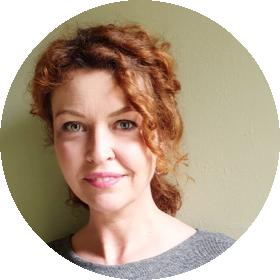
By Lenka Boswijk
Upon visiting the city centre of Kolomna, southeast of Moscow, you will be greeted by historic houses and the colourful Kremlin. The Kolomna Centre for Educational Tourism, Kolomna Posad, aims to preserve and renovate this historic part of town and also focuses on preserving the traditional crafts and local industries of the city. "Kolomna Posad" started in 2008 when a small group of local enthusiasts won a national museum competition and received a grant to open one of the first museums in Russia that aims to preserve intangible heritage.
Cultural heritage Library
In the last three years, hundreds of professionals working in the field of heritage visited Kolomna. The Kolomna museum cluster has not only been disseminating knowledge and experience, but also best practices from all over Russia. However, the current resources are limited and the centre can neither receive all the people wishing to visit, nor collect and systemize all the best practices in the field of cultural heritage. That is why Kolomna Posad aims to set up a Heritage Library in order to research, interpret, provide information and promote cultural heritage.
The centre will:
1) Research successful innovative practices in Russia which are based on local heritage resources, and evaluate the practices' impact on the revival and enhancement of the socio-cultural environment and economy of the territories where such practices are implemented.
2) Design the physical space of the Heritage Library by using concepts such as the 'third place', 'humanitarian co-working spaces', and 'makerspace'.
3) Create an online database to disseminate cases and provide experience-based knowledge of successful and problematic practices.
Furthermore, there will be an emphasis on training programmes for the staff of the centre and training on heritage management. Through the centre, Kolomna Posad will also promote and recreate more traditional local brands to boost the local economy and increase tourism.
Knowledge exchange with Dutch partner organizations
In 2011, Kolomna Posad initiated the annual 'Antanovka Book and Apple festival'. In 2013, writers Arthur Japin and Sanneke van Hassel from the Netherlands participated in the festival as part of the bilateral Netherlands-Russia year. In the same year, Dutch museum expert Irina Leifer and three architects from DesignArbeid were part of a local community project in Kolomna.
Recently, the exchange was given a new impulse by a visit of a delegation from Kolomna Posad to various organizations in the Netherlands. During their trip in April, they met with the Cultural Heritage Agency of the Netherlands, the Textile Museum, Crafts Council NL, among other organizations. The aim of the visit was to discuss heritage preservation, outreach to various audiences, and systematic approaches to mapping cultural activities. Next year Kolomna Posad will build a Heritage Library; a contemporary information, project and research platform for heritage preservation.
Traditional apple delicacy
Kolomna is famous for its Kolomna pastila, a traditional apple delicacy. In the Museum of Disappeared Taste, Kolomna Posad preserves this delicacy and is now also producing various traditional apple sweets. After the opening of the museum in 2009, Kolomna Posad has opened four more museums in the city; the Museum of Communal Life in the Soviet Union, the Museum of Kolomna Coins, the Kolomna Pastila Museum Factory and the Kolomna Bakery. Besides, Kolomna Posad has founded the Museum Navigator, an information centre for tourists, and the organization had been leading in the process of refurbishing streets and squares within the historic town.
As a result of thorough research, several production lines have been opened to serve the above-mentioned museums. They produce the pastila, particular varieties of traditional bread and artisan boxes for pastila made according to 19th-century traditions. Several more museums with accompanying production lines will be opened within the next three years.
During the recent research trip to the Netherlands, the delegation from Kolomna has gathered several ideas on how to set up a database and how to collect and document best practices in the field of heritage. They plan to keep exchanging knowledge with the Dutch organizations.
Check out the complete overview of Dutch cultural activities in Russia in our database. If you are a cultural professional who wants to cooperate with Russia, feel free to contact our Russia advisor Tijana Stepanovic.


